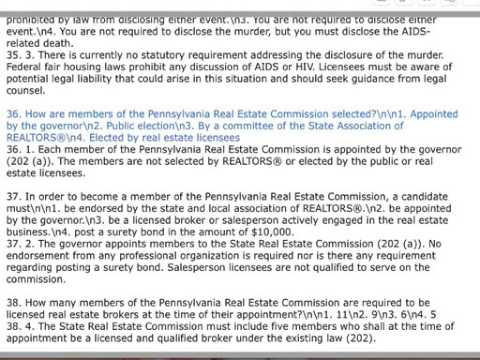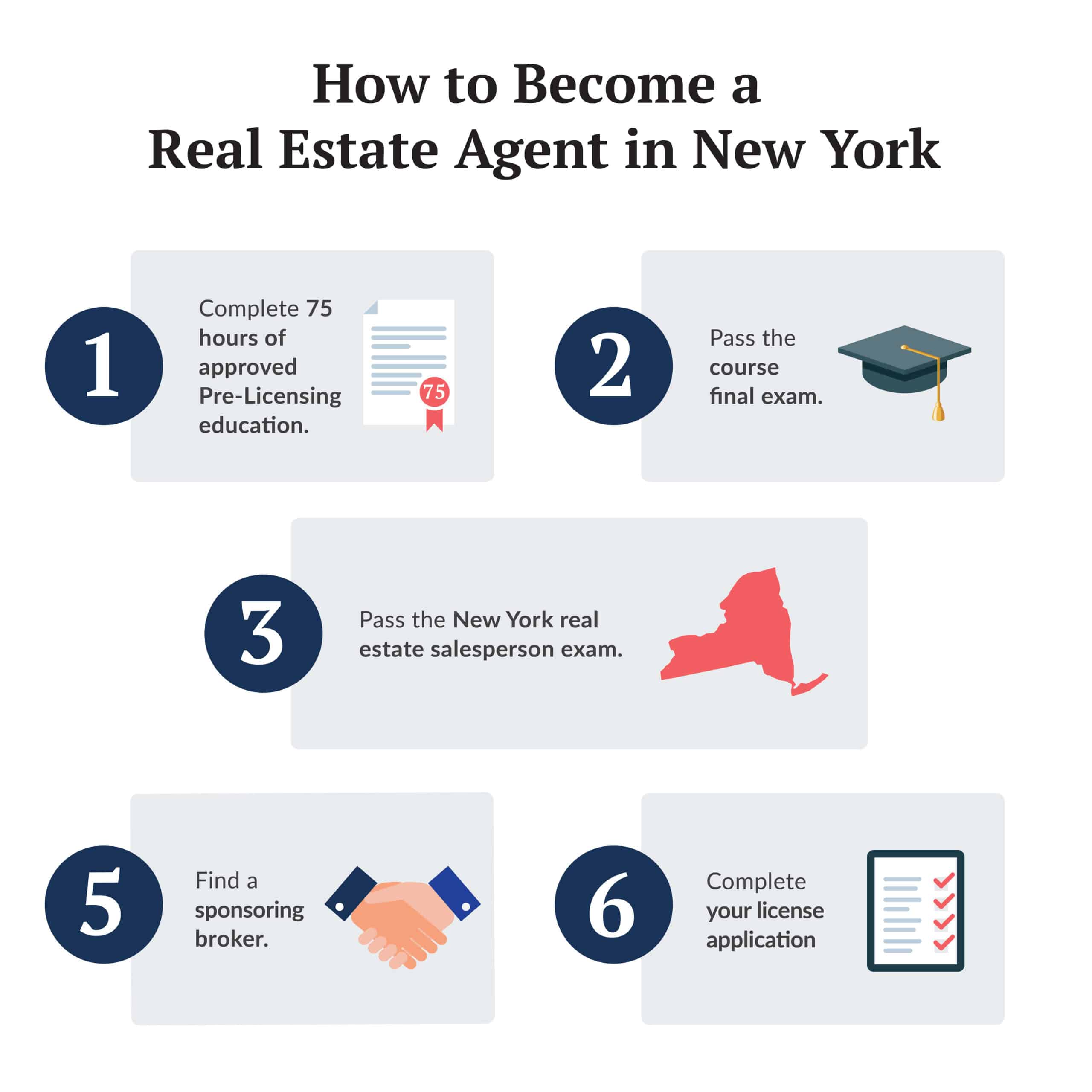
It doesn't matter if you're looking to buy a house or become a property investor. Or if you want to make a move in the real estate market, getting a Georgia real estate license will be a smart decision. With the state's growing market, more people are moving to the city. A license will make it easier to do your job and help family members and friends buy homes.
It's not easy to get your Georgia real estate license. A 75-hour prelicensing course is required to get started. This can be done online, in-person, or both. The state's real-estate exam consists of 152 multiple choice questions. If you don’t pass the test you will have to pay a fee.
To get the best results, you should take the state's real-estate exam within six months after completing your coursework. A Certificate of Completion will be awarded to you if your coursework is successful. Time management is the most important quality in a successful agent.

Georgia's realty industry is growing quickly and there are more agents needed. Fortunately, obtaining a real estate license can be a simple and inexpensive process. A licensed broker can answer any questions you may have. You can also get help from them to decide if a real estate license would be right for you.
A criminal history report is an essential step in obtaining a Georgia real-estate license. Because you will be working alongside clients, it is important to obtain a criminal history report. You must submit a criminal background report within 60 days after submitting the application. Failure to submit the report will result in a $340 fee. This will protect the integrity and prevent you from getting in trouble.
Another important piece of information you should know is how to make the most of your money. In Georgia, you will need to pay a licensing fee, which can be as low as $170 or as high as $340. To make the payment, you can use a Visa, cashier's cheque, or credit card. A completed application form will be required. Be sure to research fees before you apply.
Passing the state's licensing examination is Georgia's greatest accomplishment as a real estate licensee. The test has 152 questions and you must pass 72%. The test is administered in a PSI testing facility. You'll need to have a high school diploma to enroll in this class, and you'll need to pass the state's real estate test to qualify for a Georgia real estate license.

There are many real-estate schools available. Your needs and your budget will determine which one is right for you. While some schools offer online courses, others require that you attend a classroom. The best choice for you is one that offers both quality instruction and reasonable prices. Students who enjoy socializing with their classmates and are motivated by a real estate school in a classroom setting can choose this type of school.
FAQ
Should I use an mortgage broker?
A mortgage broker can help you find a rate that is competitive if it is important to you. Brokers are able to work with multiple lenders and help you negotiate the best rate. Some brokers earn a commission from the lender. Before you sign up for a broker, make sure to check all fees.
How much money will I get for my home?
This varies greatly based on several factors, such as the condition of your home and the amount of time it has been on the market. The average selling price for a home in the US is $203,000, according to Zillow.com. This
Do I need to rent or buy a condo?
Renting could be a good choice if you intend to rent your condo for a shorter period. Renting will allow you to avoid the monthly maintenance fees and other charges. A condo purchase gives you full ownership of the unit. You can use the space as you see fit.
How many times can my mortgage be refinanced?
This depends on whether you are refinancing with another lender or using a mortgage broker. In either case, you can usually refinance once every five years.
What are the drawbacks of a fixed rate mortgage?
Fixed-rate mortgages have lower initial costs than adjustable rates. Also, if you decide to sell your home before the end of the term, you may face a steep loss due to the difference between the sale price and the outstanding balance.
Statistics
- This means that all of your housing-related expenses each month do not exceed 43% of your monthly income. (fortunebuilders.com)
- Private mortgage insurance may be required for conventional loans when the borrower puts less than 20% down.4 FHA loans are mortgage loans issued by private lenders and backed by the federal government. (investopedia.com)
- 10 years ago, homeownership was nearly 70%. (fortunebuilders.com)
- This seems to be a more popular trend as the U.S. Census Bureau reports the homeownership rate was around 65% last year. (fortunebuilders.com)
- When it came to buying a home in 2015, experts predicted that mortgage rates would surpass five percent, yet interest rates remained below four percent. (fortunebuilders.com)
External Links
How To
How to Manage a Rental Property
While renting your home can make you extra money, there are many things that you should think about before making the decision. This article will help you decide whether you want to rent your house and provide tips for managing a rental property.
Here are some things you should know if you're thinking of renting your house.
-
What do I need to consider first? Take a look at your financial situation before you decide whether you want to rent your house. If you are in debt, such as mortgage or credit card payments, it may be difficult to pay another person to live in your home while on vacation. Your budget should be reviewed - you may not have enough money to cover your monthly expenses like rent, utilities, insurance, and so on. ), it might not be worth it.
-
How much is it to rent my home? It is possible to charge a higher price for renting your house if you consider many factors. These factors include the location, size and condition of your home, as well as season. Keep in mind that prices will vary depending upon where you live. So don't expect to find the same price everywhere. The average market price for renting a one-bedroom flat in London is PS1,400 per month, according to Rightmove. This means that you could earn about PS2,800 annually if you rent your entire home. While this isn't bad, if only you wanted to rent out a small portion of your house, you could make much more.
-
Is it worthwhile? Doing something new always comes with risks, but if it brings in extra income, why wouldn't you try it? Make sure that you fully understand the terms of any contract before you sign it. Renting your home won't just mean spending more time away from your family; you'll also need to keep up with maintenance costs, pay for repairs and keep the place clean. Before you sign up, make sure to thoroughly consider all of these points.
-
Are there any benefits? It's clear that renting out your home is expensive. But, you want to look at the potential benefits. Renting your home is a great way to get out of the grind and enjoy some peace from your day. You will likely find it more enjoyable than working every day. You could make renting a part-time job if you plan ahead.
-
How do I find tenants? After you have made the decision to rent your property out, you need to market it properly. Make sure to list your property online via websites such as Rightmove. Once potential tenants reach out to you, schedule an interview. This will allow you to assess their suitability, and make sure they are financially sound enough to move into your house.
-
How do I ensure I am covered? If you're worried about leaving your home empty, you'll need to ensure you're fully protected against damage, theft, or fire. In order to protect your home, you will need to either insure it through your landlord or directly with an insured. Your landlord will typically require you to add them in as additional insured. This covers damages to your property that occur while you aren't there. If your landlord is not registered with UK insurers, or you are living abroad, this policy doesn't apply. In these cases, you'll need an international insurer to register.
-
Even if your job is outside the home, you might feel you cannot afford to spend too much time looking for tenants. You must put your best foot forward when advertising property. Post ads online and create a professional-looking site. It is also necessary to create a complete application form and give references. While some people prefer to handle everything themselves, others hire agents who can take care of most of the legwork. In either case, be prepared to answer any questions that may arise during interviews.
-
What happens once I find my tenant You will need to notify your tenant about any changes you make, such as changing moving dates, if you have a lease. Otherwise, you can negotiate the length of stay, deposit, and other details. While you might get paid when the tenancy is over, utilities are still a cost that must be paid.
-
How do I collect the rent? When the time comes to collect the rent, you'll need to check whether your tenant has paid up. You'll need remind them about their obligations if they have not. Any outstanding rents can be deducted from future rents, before you send them a final bill. If you're struggling to get hold of your tenant, you can always call the police. They will not usually evict someone unless they have a breached the contract. But, they can issue a warrant if necessary.
-
How do I avoid problems? Although renting your home is a lucrative venture, it is also important to be safe. Make sure you have carbon monoxide detectors installed and security cameras installed. Make sure your neighbors have given you permission to leave your property unlocked overnight and that you have enough insurance. You must also make sure that strangers are not allowed to enter your house, even when they claim they're moving in the next door.